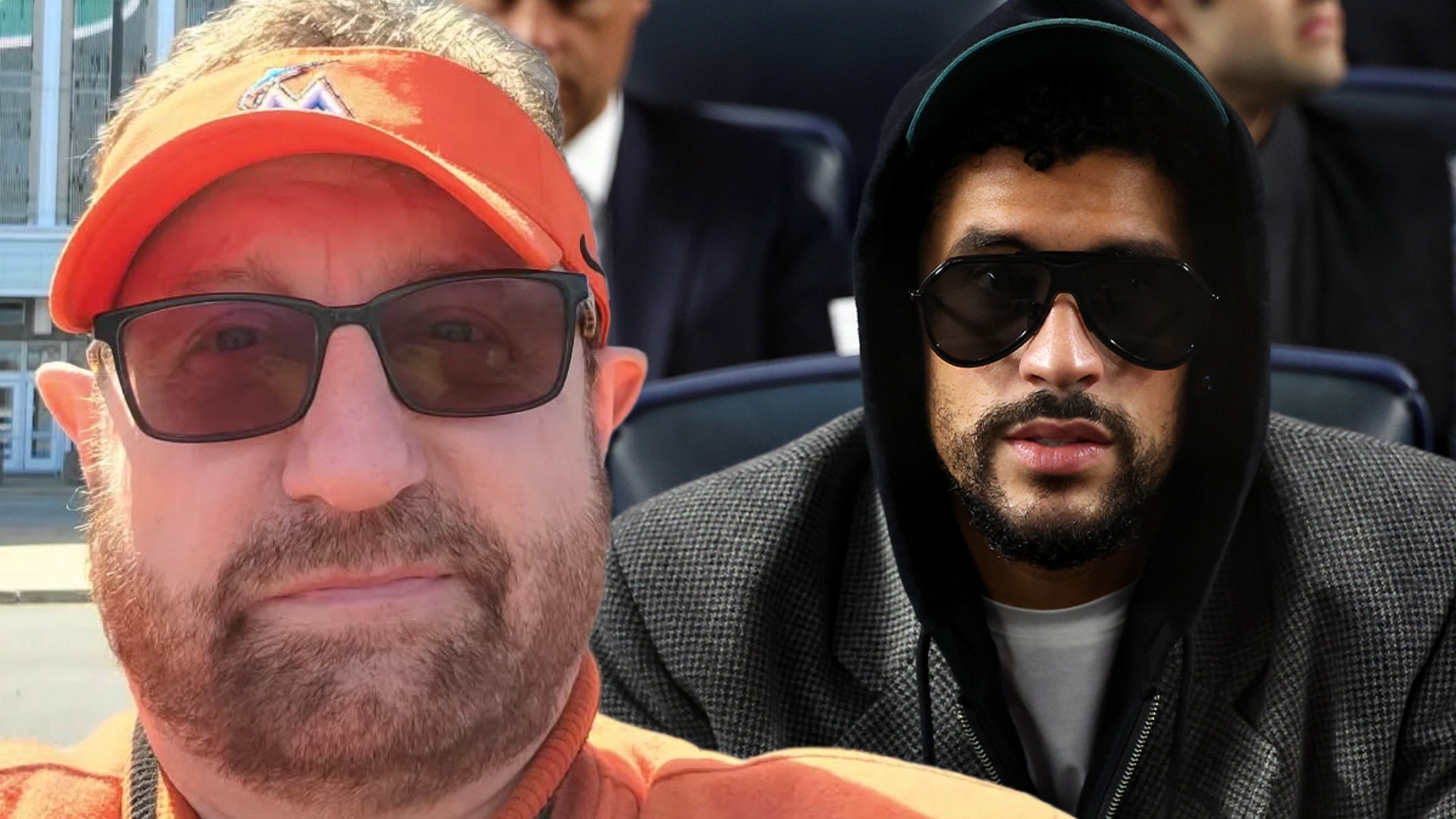In the electrifying atmosphere of Yankee Stadium, global superstar Bad Bunny sparked a firestorm by remaining seated during the rendition of “God Bless America.” But amid the uproar, many are asking: Did he really do anything wrong in this Bad Bunny God Bless America controversy?
The incident unfolded on October 8, 2025, during Game 1 of the American League Division Series between the New York Yankees and the Toronto Blue Jays. As is tradition in the seventh-inning stretch at Yankee Stadium, “God Bless America” echoed through the stands, with most fans rising to their feet. Video footage captured the Puerto Rican artist, born Benito Antonio Martínez Ocasio, staying in his seat alongside friends, chatting casually while the patriotic tune played. This sitting controversy quickly went viral, amplifying existing tensions around Bad Bunny’s outspoken political views and his upcoming Super Bowl halftime performance.
Bad Bunny, a chart-topping reggaeton icon with billions of streams worldwide, has never shied away from controversy. Hailing from Puerto Rico—a U.S. territory often at the center of debates over statehood and federal aid—he’s been vocal about issues like immigration, disaster relief after Hurricane Maria, and criticism of former President Donald Trump. In 2019, he joined massive protests in Puerto Rico that led to the governor’s resignation, and he’s repeatedly used his platform to advocate for Latino communities. His decision to sit didn’t occur in a vacuum; it followed the NFL’s announcement last month that he’d headline the 2026 Super Bowl halftime show in Santa Clara, California, a choice that already drew ire from conservative circles for his non-English lyrics and progressive stances.
Public reactions poured in swiftly across social media and news outlets. Conservative commentator Tomi Lahren blasted the move on X, formerly Twitter, claiming it showed “clear disdain for America” and tying it to calls for boycotting the Super Bowl. House Speaker Mike Johnson echoed the sentiment, suggesting the NFL pick someone like Lee Greenwood instead, arguing Bad Bunny doesn’t appeal to a “broader audience.” On the flip side, defenders rallied online, pointing out that “God Bless America” isn’t the national anthem—”The Star-Spangled Banner”—and there’s no legal or etiquette requirement to stand for it. One viral post noted, “It’s not the anthem, you are not required to stand as able for ‘God Bless America.’ Stop making it something it’s not.”
Laurence Leavy, better known as “Marlins Man”—a famous MLB superfan who was seated just two spots away from Bad Bunny—offered firsthand insight. In interviews, Leavy explained that he urged the singer to stand but respected his choice. He emphasized that Bad Bunny’s frustration with Trump played a role, but ultimately, “Bad Bunny did nothing wrong” since standing isn’t mandatory. Leavy described the artist as low-key during the game, arriving late, leaving early, and staying glued to his phone, suggesting the moment was more about personal disengagement than deliberate protest. This account humanizes the event, shifting focus from outrage to understanding.
For U.S. readers, this episode hits home in multiple ways. Politically, it underscores deepening divisions in a post-Trump era, where patriotism often intersects with immigration debates—especially relevant to the 60 million Latinos in the country, many of whom feel marginalized. Bad Bunny’s actions resonate with younger, diverse audiences who see him as a symbol of cultural pride, potentially influencing voter turnout in swing states like Florida and Pennsylvania. In terms of lifestyle and entertainment, the Super Bowl halftime slot is a cultural juggernaut viewed by over 100 million Americans annually; any backlash could affect ratings, sponsorships, and even AdSense-driven traffic for news sites covering celebrity drama. Sports-wise, it adds another layer to MLB’s traditions, questioning how inclusive these rituals feel to non-mainstream fans. Economically, Bad Bunny’s global brand boosts tourism and music sales, with his tours generating millions—reminding us that cultural figures like him drive U.S. consumer spending in entertainment.
User intent here seems clear: People searching for clarity on the Bad Bunny God Bless America controversy want balanced facts amid the noise, not just sensational headlines. Managing this means sifting through misinformation, like false claims that he sat during the actual national anthem, which fact-checks have debunked. Instead, it’s about freedom of expression in a diverse nation.
As streams of Bad Bunny’s music reportedly surged post-incident, the fallout might ironically elevate his profile further. Calls for Super Bowl boycotts from MAGA supporters contrast with excitement from his fanbase, highlighting America’s cultural mosaic. In the end, this Yankee Stadium moment serves as a reminder: In a free country, sitting or standing is a personal choice, not a litmus test for loyalty.
By Sam Michael
Follow and subscribe to us to increase push notifications.
Bad Bunny, God Bless America, Yankee Stadium, sitting controversy, Super Bowl halftime, MAGA outrage, Donald Trump, Puerto Rico, NFL boycott, celebrity politics, MLB traditions, Latino representation, freedom of expression, patriotic songs, baseball playoffs
